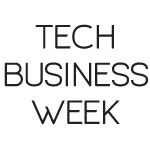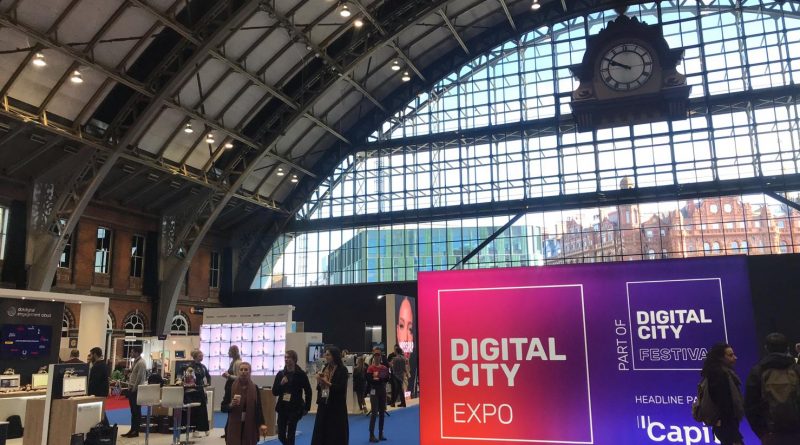Digital City Expo 2020 promotes Manchester as key player in Digital Revolution
To celebrate the UK’s booming digital industry, Digital City Expo 2020 was held in early March at Manchester Central Convention Complex.
The Mayor of Greater Manchester, Andy Burnham, said it could be the UK’s ‘South By Southwest,’ which is a major media and technology festival based in Austin, Texas.
Manchester is currently in the lead as Europe’s fastest growing city. Investment in its technology sector increased from £41m to £181m during 2018 to 2019.
Technology and its applications are constantly evolving so the event was the perfect opportunity for businesses to talk about the digital industry’s future.
“Todays event is amazing because it’s connecting all the ecosystem players in the digital sector,” said Catherine Thomas, account manager for big businesses at GC Business Growth Hub.
“We have huge corporate players, the supporters such as ourselves, the start-ups, public entities, and international visitors. It’s one amazing space where they can all meet and hopefully create new tech products.
“We help corporations grow their business through innovation and that’s where the tech and digital aspect comes in. I have to get large companies to collaborate with the start-up ecosystem.”
Marketing, Media, Technology, and Ecommerce are the four main sectors within the digital ecosystem.
Google is a key innovator in ecommerce. 30% of ecommerce sales are done on its sites. It has partnered with smaller businesses to help retailers scale up revenue.
Google shopping specialist at Bidnamic, Adam Ellmore, said: “We’re probably at the forefront of evolution in the digital industry which is machine learning and using an automated approach. There’s been a few talks today about how AI software is encroaching marketing whether that’s google marketing, social media marketing, or email marketing.”
Algorithms and machine learning help retailers harness the power of getting the right bid value for SKU (Stock Keeping Unit). Bidnamic is a software which constantly updates the bid value so retailers are ahead of the ever-changing market.
“We’re only two years old and continuing to grow. We can show clients how to use automated methods. In 5-years-time there’ll be more companies like us helping retailers work smarter rather than harder,” Ellmore added.
PPC (Pay-per-click) agency, Mabo, works with google, Microsoft ads, and amazon. It manages marketing budgets from £1,000 to £100,000 per month.
PPC manager, Gary Murphy, contends automation will not take over everything entirely. He said: “We’ve seen that a lot of manual optimisation techniques have been striped from google ads and Microsoft ads.
“Not everything’s necessarily becoming automated but they’ve developed a smart bidding which takes information from different data points. You have to react to that and position yourself accordingly.
“A lot of traditional methods in terms of key word advertising and display advertising we imagine will become more automated. So coming to events like this gives us the opportunity to learn how automation will come into play and what we need to do as a company to prepare.”
Digital City Expo allows businesses to expand their network and understand the wants and needs of potential customers.
Product manager at Vaioni, Naeem Azam, said: “As a connectivity provider, we realise when 5G takes a real footing, the IOT (Internet of Things) around it will be very important. The service applications we consume on a day-to-day-basis are all very intense on demand and bandwidth of connectivity.
“From that perspective, we know the demand will be ever increasing. Hence we have invested multi-millions to ensure connectivity has the capacity, scalability, and quality to service new applications.
“Everything will be driven by user’s expectations, the new tech coming into marketplace, and how Vaioni can service it.”
Vaioni is an infrastructure company based locally in Media-City. It has 200 presences and hopes to expand to 130 more presences next year.
Companies based in the south such as Screen Pages are usually restricted from networking in the north. Marketing executive, Christina Bontitoti, said: “It’s great to see everything expanding up north. We get to see a lot of new brands we don’t usually see down south.”
Screen Pages is one of the longest served Magento partnered eccomerce agencies in the UK. It builds websites for big-brands and specializes in fashion and lifestyle.
Bitioni is confident that the internet will dramatically change over the next few years. She said: “Definitely for the next year or two, progressive web apps will be a big differentiator and will revolutionize mobile commerce. They will replace native apps and new websites will be built as PWAs (Progressive Web Application).
“It will bridge mobile revenue gap which is a big issue in ecommerce.”
Privacy and the way consumer’s data is being handled is another huge concern within the digital sphere.
Google’s new cookie law aims to restrict advertising cookies which are accessed via its Chrome browser. It hopes to remove third party cookies over the next two years. Third party cookies are used to help advertisers and ad servers track consumer’s data.
Head of strategy and insight at Dot Digital, Gavin Laugenie, expressed how technology will improve transparency between companies and the consumer. “The biggest evolution in the digital industry is probably what everyone is talking about- AI. Not necessarily technological advances, it’s more about the information share and how customers understand what we’re doing with their data. It will either open up doors for businesses or close doors depending on how honest they’re being with data,” he said.
Dot Digital is the UK’s largest omni-channel automation platform and has offices around the globe. Partners in the northern cities still remain very important to it.
Omni-channel marketing unifies multiple channels including traditional and digital platforms, point of sale, and in-store. Consumers are at the centre of the different platforms when interacting with an ecommerce brand.
Traditional multi-channel marketing is more static as messages are sent though the different platforms separately.
Managing Director at MIQ Digital, Tom Hatton, praised Manchester for its success as a developing city. He said: “From an MIQ perspective we’re really seeing a resurgence of companies and brands coming out of Manchester. It’s really exciting to start working with those brands and see how we can help them develop their programmatic media strategy moving forward.
“There’s a huge benefit for Manchester as a city which is becoming well known as an innovator hub in the digital tech space.”
MIQ Digital is a programmatic media partner which combines data science, analytics and programmatic training. The new programmatic method involves automated bidding on advertising inventory in real time. The intelligence gathered allows MIQ Digital to target specific consumers in the right context at the right time.
Hatton continued: “There’s going to be a lot of changes in the next two years in terms of the way things are measured in the programmatic space. Google’s new cookie laws are going to have a big impact.
“What’s really exciting for us as a programmatic specialist is that programmatic marketing is not going anywhere. There may be new methodologies coming in off the back of these announcements.
“But we’re in a really good place as we’ve been involved in strategies to future proof our offering. What we’re really excited to see is how programmatic lends itself as a biometric to their channels.
“As they adopt to programmatic, like we see in digital ads at home and hopefully on TV in the future, MIQ will be able to offer its expertise.
“We’re agile enough to respond to that and showcase what we can do on an omni-channel strategy in the next five years.”
Instead of appealing to a broader audience, services will be able to zoom in closer than ever before.
Navigation around the internet will become more fluid and laborious tasks will be executed much more efficiently. This will hopefully encourage more creative thinking.
Unicorns and SMEs (Small Medium Enterprise) from the Manchester can provide fresh ideas which help expand the digital industry. Larger companies will be able to adapt and consistently improve their products or services.

